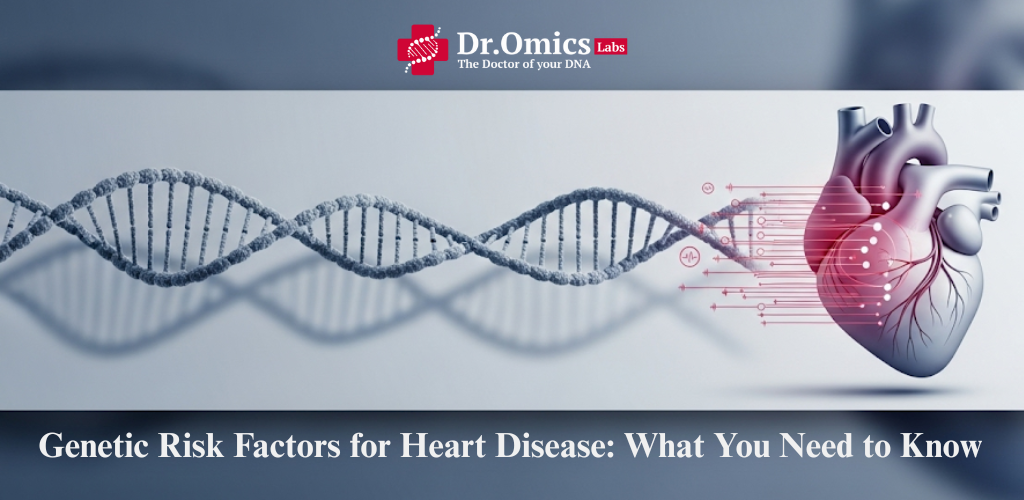Your genes may hold critical clues about your heart health. With advances in cardiovascular genomics research, we now understand how DNA influences your risk for heart disease, heart attacks, and other hereditary heart conditions. A heart disease DNA test can reveal these risks early, helping you take preventive action before symptoms appear.
How Genetics Influence Heart Disease Risk
Research shows that genetic heart attack risk isn’t just about lifestyle; your DNA plays a major role. Key findings include:
🔹 Family history matters: If a parent or sibling had early heart disease, your risk increases by 40-60%.
🔹 Specific gene variants affect cholesterol metabolism, blood pressure regulation, and artery health.
🔹 DNA screening for heart disease can detect mutations linked to conditions like:
– Familial hypercholesterolemia (extremely high cholesterol)
– Cardiomyopathy (weakened heart muscle)
– Arrhythmias (irregular heartbeats)
What a Hereditary Heart Conditions Test Can Reveal
A genomic risk assessment for heart health examines:
✅ High-risk genetic markers for coronary artery disease
✅ Mutations that cause sudden cardiac events (even in seemingly healthy people)
✅ How your body processes medications (like blood thinners or statins)
For example, the 9p21 gene variant is linked to a 50% higher risk of heart attack, regardless of lifestyle. Knowing this early allows for targeted prevention.
Who Should Consider Genetic Testing?
A heart disease DNA test is especially valuable if you have:
✔ A family history of early heart disease (before age 55 in men, 65 in women)
✔ Unexplained high cholesterol or blood pressure
✔ A personal history of heart issues at a young age
Even if you’re healthy, testing can reveal hidden risks and guide personalized prevention strategies.
The Future of Cardiovascular Genomics
Exciting developments in cardiovascular genomics research include:
🔸 AI-powered risk prediction – Combining genetics with lifestyle data for ultra-accurate forecasts.
🔸 Gene-editing therapies – Experimental treatments to “fix” high-risk mutations.
🔸 Newborn screening for heart genes – Early detection to prevent future disease.
Take Control of Your Heart Health
Your genes don’t have to be your destiny. With DNA screening for heart disease, you can:
– Get early warnings before symptoms appear
– Personalize your diet, exercise, and medications
– Reduce risk through proactive monitoring




